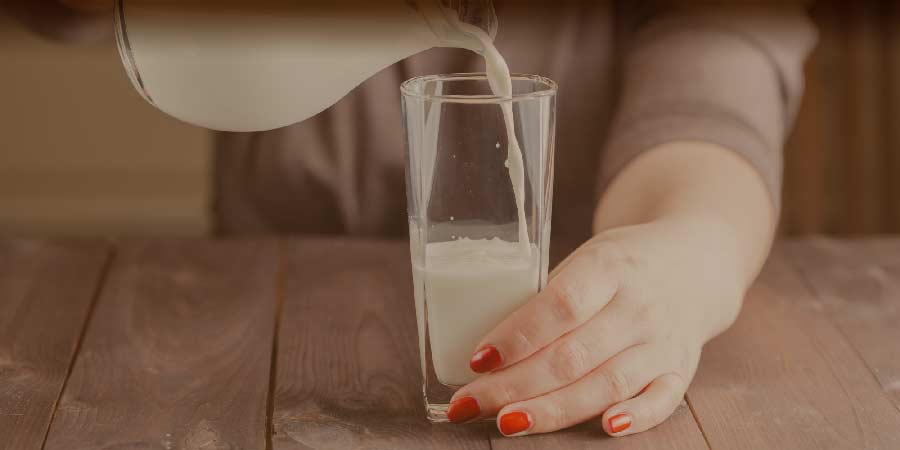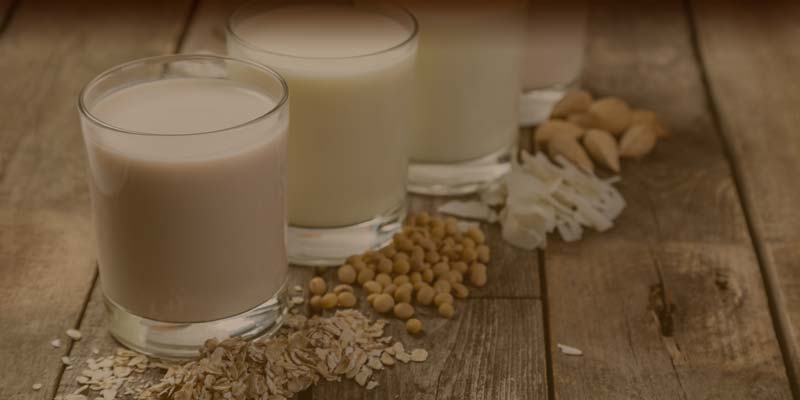It’s top of the nutrient list for gym goers, body builders and athletes. But it’s not just sporty types that need protein. Whether you’re young, older or somewhere in between, it’s important to get enough protein to maintain muscle. Good news then that some dairy products – such as milk, cheese and yogurt – are packed with protein, so can help boost intakes of this vital nutrient. Find out more about protein in milk and dairy.
PROTEIN – THE MUSCLE-FRIENDLY NUTRIENT
It’s a nutrient many of us associate with ripped body builders and regular gym goers. And protein is indeed important for building and maintaining muscles. But we all need protein in our diet, regardless of our age or how active we are.
Dairy products like milk, cheese and yogurt are rich in protein – and the great news is this protein comes naturally packaged with many essential vitamins and minerals, that help to keep us healthy, too.
But it’s not just the quantity of protein that’s important. The quality of protein in our diet is also important.
Many dairy products are winners on both counts. As well as being packed with protein, milk, cheese and yogurt supply all the essential amino acids – the building blocks for protein – that our bodies need. It’s great news because ‘essential’ amino acids can’t be made in our bodies so we need to get these from the food we eat.
PROTEIN FOR BONES
While most of us know protein is important for our muscles, it’s also vital for our bones. This is particularly important for children, where protein is needed for the normal growth and development of bone. We all know of benefit to our bones that’s delivered by the calcium in milk, but combined with protein and phosphorous, makes milk, cheese and yogurts great choices for supporting our bones.
HOW MUCH PROTEIN DO I NEED?
The Reference Intake (RI) for protein that’s included on food labels is 50g a day. ‘Reference Intake’ is just a term which describes the amount of nutrients or calories recommended by health professionals to be within the bounds of a healthy diet. Sometimes these recommended amounts can vary depending on our age and gender. This is just a guideline though. Exact needs for protein depend on our age, size, gender and how active we are. For example, men have higher needs for protein than women because they have bigger bodies. There are also stages in life when we may have higher needs for protein, for example, if we are breastfeeding.

In the UK, there are more detailed guidelines for protein at specific ages and stages in life…
| Age | Protein needs
(Reference Nutrient Intake) g/day |
| 1-3 years | 14.5 |
| 4-6 years | 19.7 |
| 7-10 years | 28.3 |
| 11-14 years | Males: 42.1
Females: 41.2 |
| 15-18 years | Males: 55.2
Females: 45 |
| 19-50 years | Males: 55.5
Females: 45 |
| 50+ years | Males: 53.3
Females: 46.5 |
| Pregnancy | 51 |
| Breastfeeding | Up to 6 months: 56
After 6 months: 53 |
Last reviewed: 03/2021
Next review due: 03/2023











